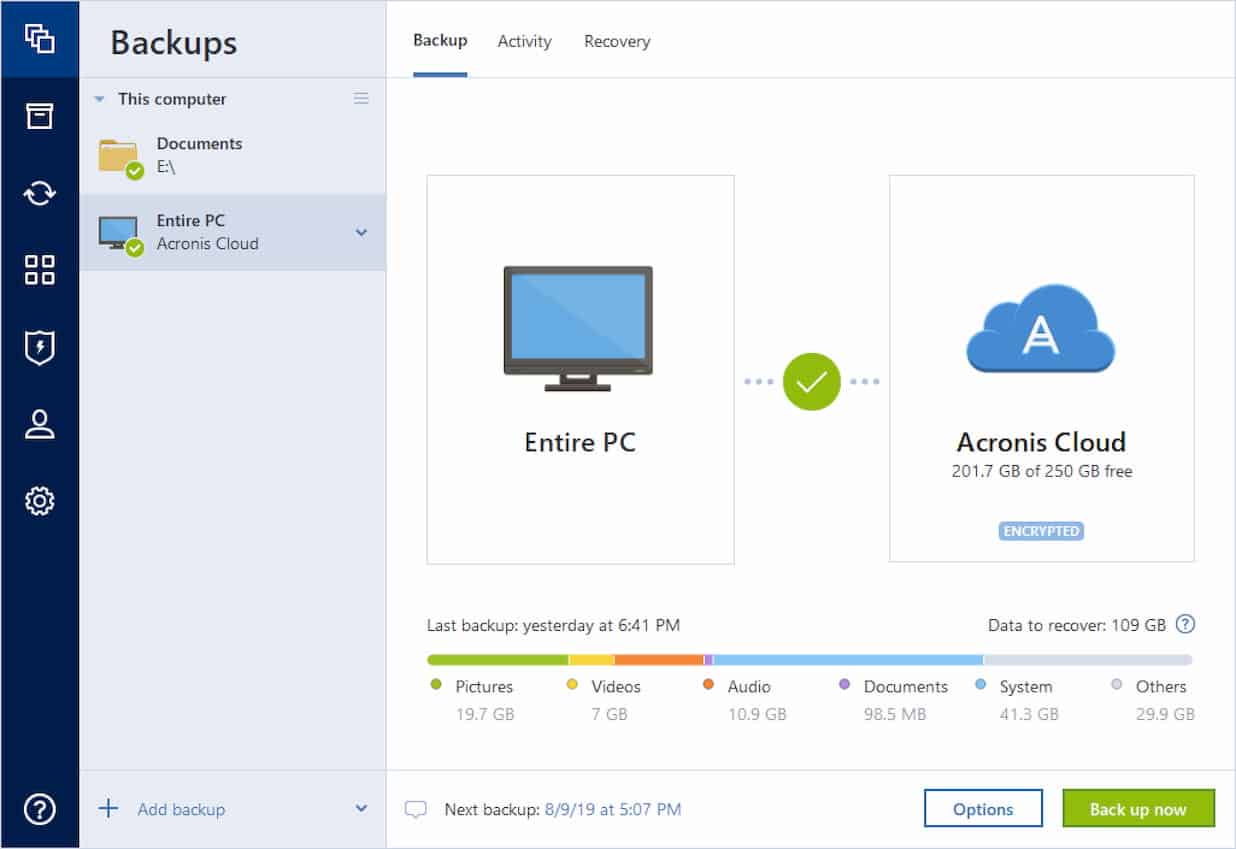

- #2015 best free encryption software driver#
- #2015 best free encryption software software#
- #2015 best free encryption software code#
- #2015 best free encryption software windows#
The $500 or so I donate each year is a lot of money to me, and I'm in the US - I cannot imagine how much donating to these projects would hurt the international users who make significantly less than the 15-25k or so I make annually.
#2015 best free encryption software software#
I mean, I feel the burn when I give money to Debian, Arch, KDE, etc - but I do it because I know I have to, because the software is so important to me. The problem is that in practice most people in almost any free software project do not have the funds personally to afford donating all the time. But the "year of the linux desktop" hasn't quite arrived yet. Linux comes pre-installed on majority of server hardware (server hardware than comes with any OS at all that is), and Linux dominates this field. (probably some Microsoft deal going on here).

#2015 best free encryption software windows#
It's weird too, because Sputnik is $50 more expensive than the windows version of the same hardware.
#2015 best free encryption software driver#
The people who use Linux as their daily driver generally don't need the support, and for the ones who do, well it's a lot less marketshare than Windows.īesides Sputnik, and some Linux-only end-user manufacturers like System76, there really isn't a lot of choice for pre-installed Linux end-user computers. People always joke with Linus when the "year of the Linux desktop" will finally arrive. This isn't just a problem for Ubuntu, but for most end-user linux distros. > I don't see why they could not get support contracts with Dell, HP, etc to sell Ubuntu computers and provide the tech support in exchange for positive cash flows. Shuttleworth has committed to keeping Ubuntu alive, but it's no longer Canonical's sole hope for income. Shuttleworth's game-plan was always long-term minded regarding Ubuntu - but as we've seen as-of-late, Canonical is shifting focus to other markets they view as potentially profitable. Ubuntu has never been profitable for Canonical. > I wonder what happened behind the scenes that basically killed Ubuntu in its tracks. They aren't somehow coupled to Ubuntu to the point if Ubuntu didn't exist, Canonical wouldn't either. Canonical could very well just run enterprise support contracts, or push their cloud services. right now Ubuntu project is responsible for Canonical being perpetually in the red.

It's not a net gain unless the company can be profitable as a whole and subsidize (and justify the enormous expense) off-put by tertiary services, etc. > But it is a net gain for the company, and in fact without it the rest wouldn't exist. The better the OS, the more enterprise pays, the more funding RH can put into the OS dev team, the better the OS gets, the more support fees they collect, etc etc etc.Ĭanonical has not been able to successfully charge for support like RH and SUSE have figured out. they collect support payments because enterprise wants their OS. They pay for the development from support payments.

it's very possible to be profitable off your OS Development division. Could they cover hardware, colo and bandwidth costs, if they had to? I'm just curious. Is there someone from the Debian project here? I'm wondering if they could afford to run their own mirrors around the world if they had to. * If a penny was donated for every pf or OpenSSH installed with a mainstream operating system or phone in the last year we would be at our goal.
#2015 best free encryption software code#
* If $2 were given for every download of the OpenSSH source code in the last year from the master site (ignoring the mirrors) we would be at our goal. * If $10 were given for every installation of OpenBSD in the last year from the master site (ignoring the mirrors) we would be at our goal. They also had problems raising funds, there were discussions on HN about that here, and I'm sure there will be more in a year or two. OpenSSH falls under OpenBSD, which also supports just the founder, everyone else volunteers, and they DO volunteer some serious time and do important things. There's only so much software that can get away with that, GPG certainly can't.Īll of the Debian developers are volunteers, am I wrong? Slackware can barely support one employee, the founder. Firefox is kinda special because they get a lot money from whoever pays them to be the default search engine, doesn't matter if it's Google or Microsoft or Yahoo.


 0 kommentar(er)
0 kommentar(er)
